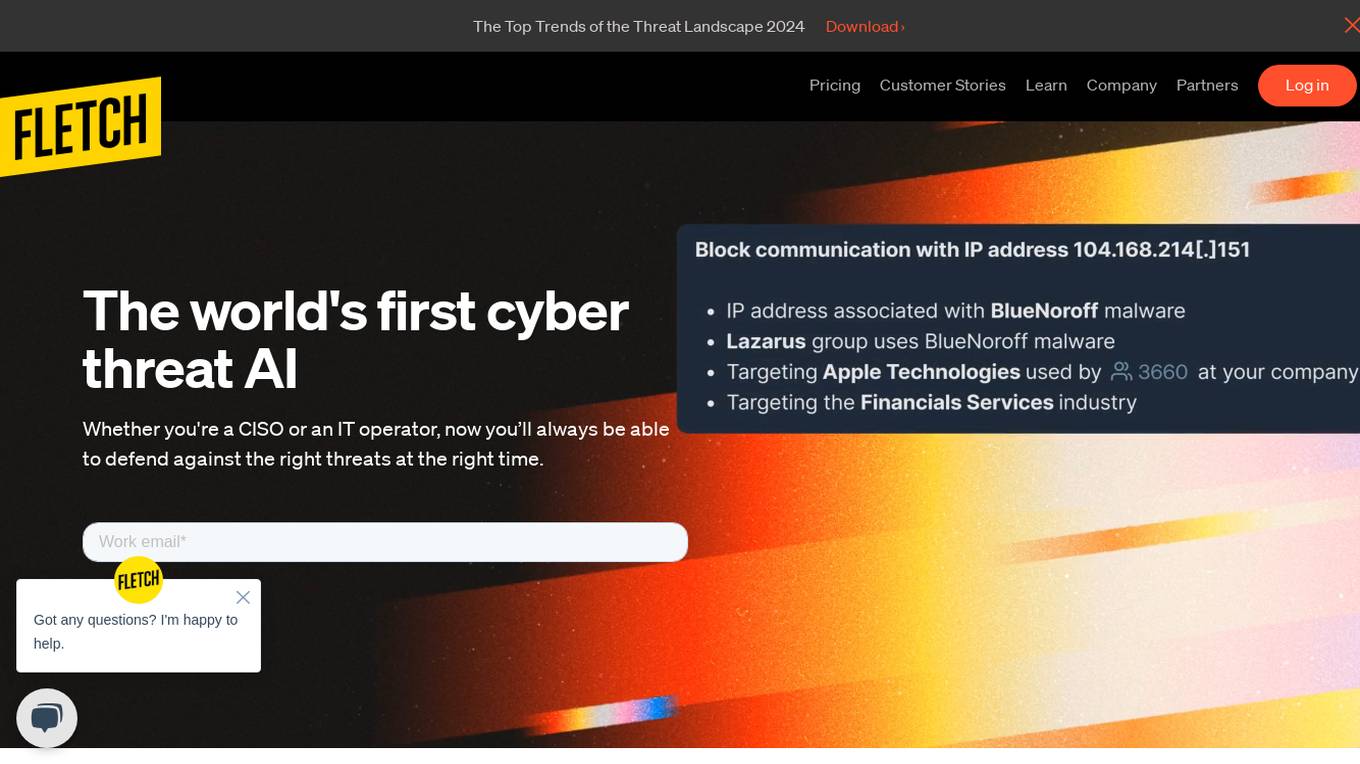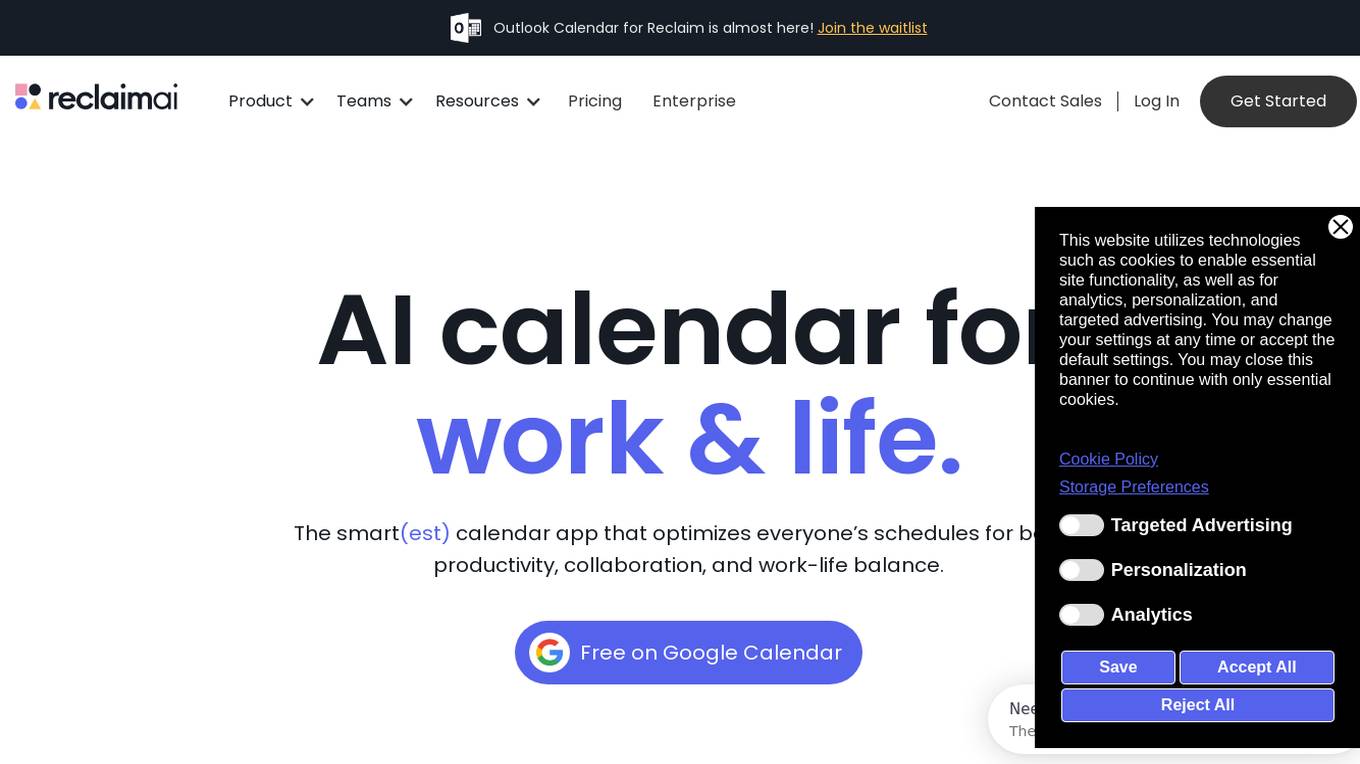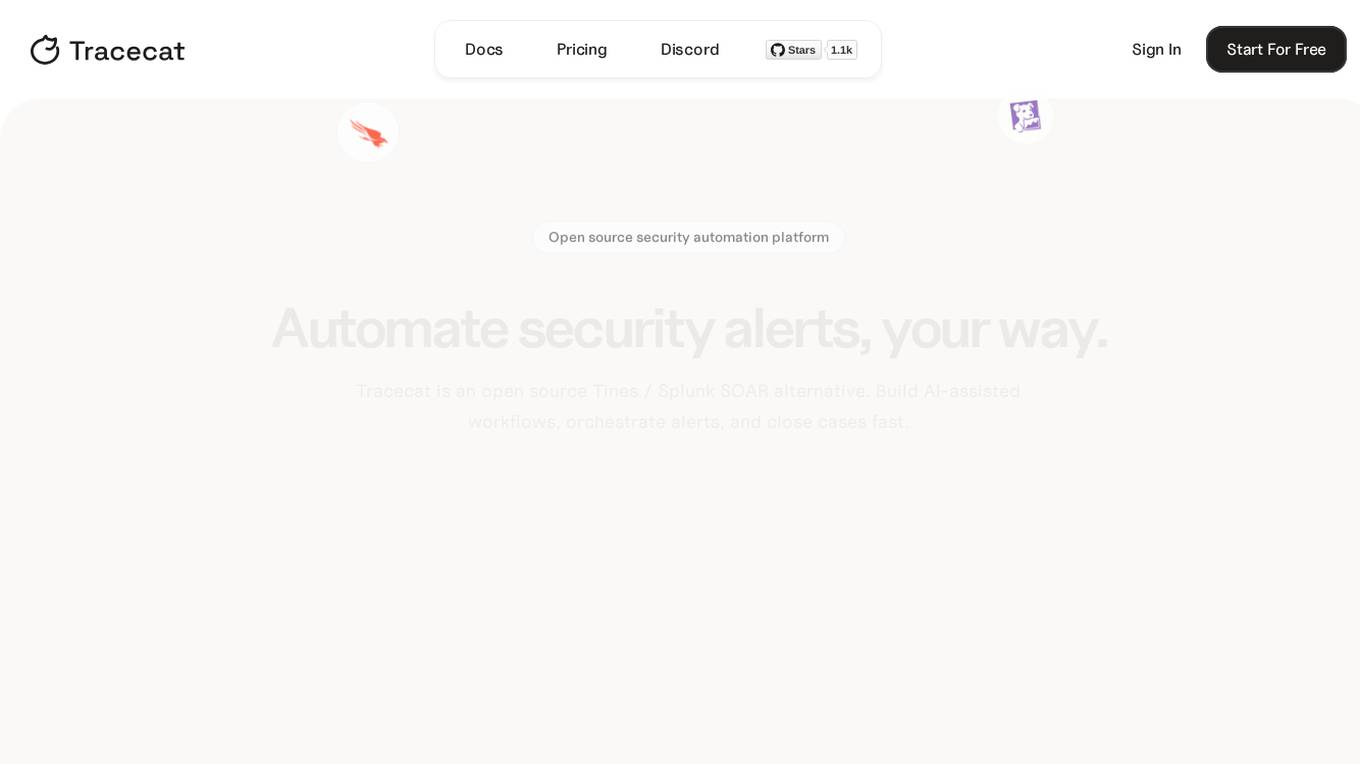Best AI tools for< Defend The Book Of Mormon >
13 - AI tool Sites

Fletch
Fletch is the world's first cyber threat AI application that helps users stay ahead of cyber threats by automating busywork with AI agents. It continuously trends the threat landscape, forecasts impact, prioritizes alerts, generates tailored advice, and provides daily proactive insights to guide users in defending against threats. Fletch filters and prioritizes alerts, uncovers weaknesses in SaaS supply chains, and offers timely tactical advice to act fast in critical moments. The application also assists in articulating threat messages and provides instant answers through AskFletch chat. Fletch integrates with existing tools, simplifying users' lives and offering hands-on guidance for businesses of all sizes.

Palo Alto Networks
Palo Alto Networks is a cybersecurity company offering advanced security solutions powered by Precision AI to protect modern enterprises from cyber threats. The company provides network security, cloud security, and AI-driven security operations to defend against AI-generated threats in real time. Palo Alto Networks aims to simplify security and achieve better security outcomes through platformization, intelligence-driven expertise, and proactive monitoring of sophisticated threats.

Darktrace
Darktrace is a cybersecurity platform that leverages AI technology to provide proactive protection against cyber threats. It offers cloud-native AI security solutions for networks, emails, cloud environments, identity protection, and endpoint security. Darktrace's AI Analyst investigates alerts at the speed and scale of AI, mimicking human analyst behavior. The platform also includes services such as 24/7 expert support and incident management. Darktrace's AI is built on a unique approach where it learns from the organization's data to detect and respond to threats effectively. The platform caters to organizations of all sizes and industries, offering real-time detection and autonomous response to known and novel threats.

Breacher.ai
Breacher.ai is an AI-powered cybersecurity solution that specializes in deepfake detection and protection. It offers a range of services to help organizations guard against deepfake attacks, including deepfake phishing simulations, awareness training, micro-curriculum, educational videos, and certification. The platform combines advanced AI technology with expert knowledge to detect, educate, and protect against deepfake threats, ensuring the security of employees, assets, and reputation. Breacher.ai's fully managed service and seamless integration with existing security measures provide a comprehensive defense strategy against deepfake attacks.

MixMode
MixMode is the world's most advanced AI for threat detection, offering a dynamic threat detection platform that utilizes patented Third Wave AI technology. It provides real-time detection of known and novel attacks with high precision, self-supervised learning capabilities, and context-awareness to defend against modern threats. MixMode empowers modern enterprises with unprecedented speed and scale in threat detection, delivering unrivaled capabilities without the need for predefined rules or human input. The platform is trusted by top security teams and offers rapid deployment, customization to individual network dynamics, and state-of-the-art AI-driven threat detection.

Mimecast
Mimecast is an AI-powered email and collaboration security application that offers advanced threat protection, cloud archiving, security awareness training, and more. With a focus on protecting communications, data, and people, Mimecast leverages AI technology to provide industry-leading security solutions to organizations globally. The application is designed to defend against sophisticated email attacks, enhance human risk management, and streamline compliance processes.

DDoS-Guard
DDoS-Guard is a web security service that protects websites from distributed denial-of-service (DDoS) attacks. It checks the user's browser before granting access to the website, ensuring a secure browsing experience. The service provides automatic protection against DDoS attacks and ensures the smooth functioning of websites. DDoS-Guard is trusted by many websites to safeguard their online presence and maintain uninterrupted service for their users.

TAID
TAID is a cutting-edge AI tool that specializes in analyzing text to determine whether it was created by a human or generated by artificial intelligence models like ChatGPT. It helps users combat misinformation, ensure transparency, and maintain trust in online communication by verifying the authenticity of the text they encounter. TAID utilizes advanced machine learning algorithms to achieve impressive accuracy in detecting AI-generated content, offering a free detection service with unlimited usage and no hidden fees or subscriptions.

Reclaim.ai
Reclaim.ai is an AI-powered scheduling application designed to optimize users' schedules for better productivity, collaboration, and work-life balance. The app offers features such as Smart Meetings, Scheduling Links, Calendar Sync, Buffer Time, and Time Tracking. It helps users analyze their time across meetings, tasks, and work-life balance metrics. Reclaim.ai is trusted by over 300,000 people across 40,000 companies, with a 4.8/5 rating on G2. The application is known for its ability to defend focus time, automate daily plans, and manage smart events efficiently.

Tracecat
Tracecat is an open-source security automation platform that helps you automate security alerts, build AI-assisted workflows, orchestrate alerts, and close cases fast. It is a Tines / Splunk SOAR alternative that is built for builders and allows you to experiment for free. You can deploy Tracecat on your own infrastructure or use Tracecat Cloud with no maintenance overhead. Tracecat is Apache-2.0 licensed, which means it is open vision, open community, and open development. You can have your say in the future of security automation. Tracecat is no-code first, but you can also code as well. You can build automations fast with no-code and customize without vendor lock-in using Python. Tracecat has a click-and-drag workflow builder that allows you to automate SecOps using pre-built actions (API calls, webhooks, data transforms, AI tasks, and more) combined into workflows. No code is required. Tracecat also has a built-in case management system that allows you to open cases directly from workflows and track and manage security incidents all in one platform.

SLOT88
SLOT88 is an online gambling platform claiming to be the 'site of today's gacor slots' with a variety of online slot games. The site is often promoted as an easy-to-win slot playing place (definitely win 2025) and provides access links to Slot88 games. However, it is important to understand that such claims need to be critically analyzed, especially because the results of online gambling depend on luck and RNG algorithms, not absolute winning promises.

Darktrace
Darktrace is an essential AI cybersecurity platform that offers proactive protection, cloud-native AI security, comprehensive risk management, and user protection across various devices. It accelerates triage by 10x, defends with confidence, and connects with various integrations. Darktrace ActiveAI Security Platform spots novel threats across organizations, providing solutions for ransomware, APTs, phishing, data loss, and more. With a focus on defense, Darktrace aims to transform cybersecurity by detecting and responding to known and novel threats in real-time.

Operant
Operant is a cloud-native runtime protection platform that offers instant visibility and control from infrastructure to APIs. It provides AI security shield for applications, API threat protection, Kubernetes security, automatic microsegmentation, and DevSecOps solutions. Operant helps defend APIs, protect Kubernetes, and shield AI applications by detecting and blocking various attacks in real-time. It simplifies security for cloud-native environments with zero instrumentation, application code changes, or integrations.
0 - Open Source AI Tools
8 - OpenAI Gpts

3DCP Guru GPT
A 3D Printed Construction wiz trained on expert interviews. Use creatively, don't depend on 3DCP Guru GPT for factually accurate info (although it's pretty darn good)






